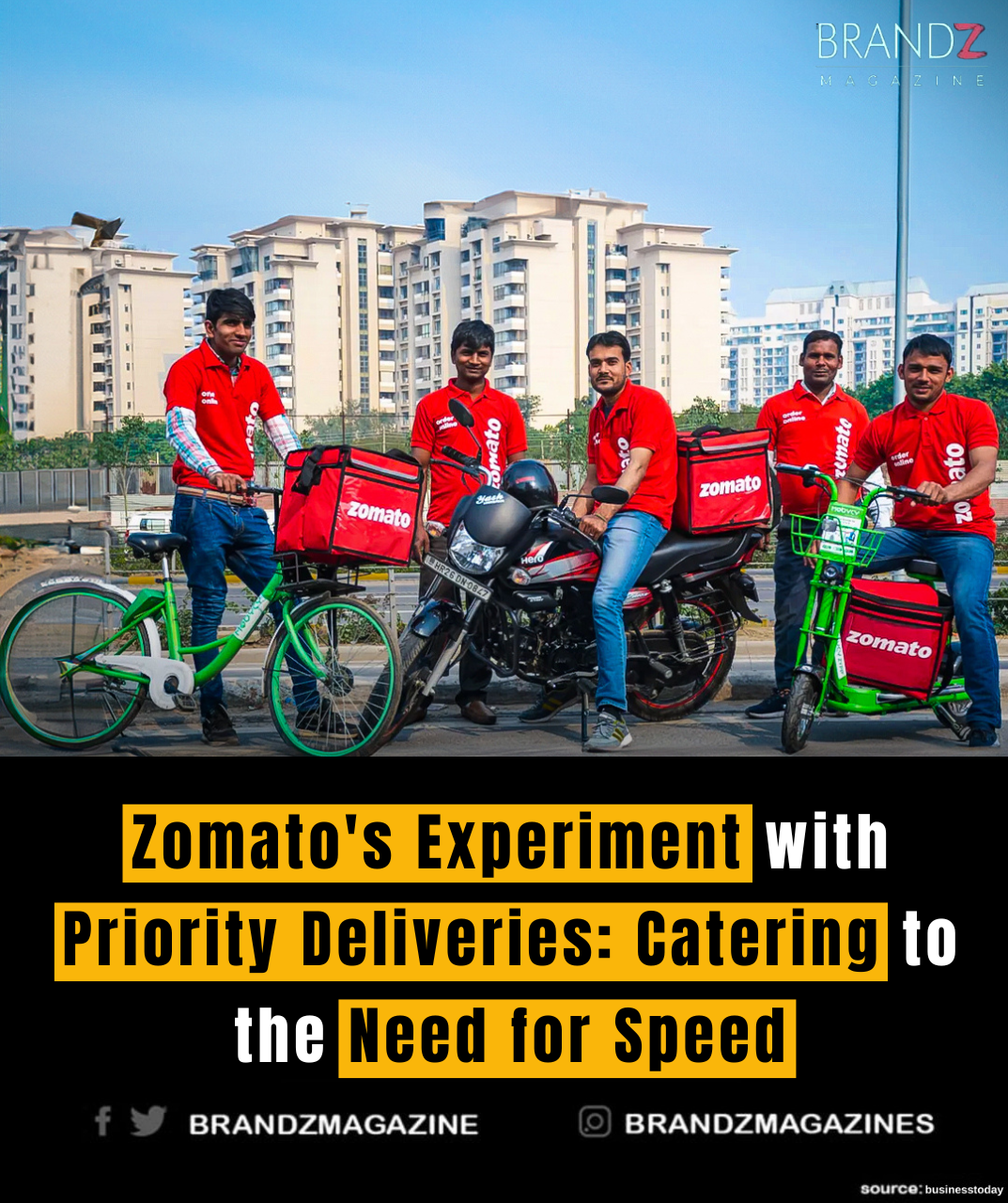
Zomato, known for its innovative approach to food delivery, is once again pushing the boundaries of convenience with a new pilot feature in select areas of Bengaluru and Mumbai. This latest experiment offers users the option of priority deliveries for an additional charge, aiming to deliver food to their doorsteps even faster.
In this new feature, users in Bengaluru and Mumbai have the opportunity to experience expedited food delivery, with the promise of receiving their orders within a significantly shorter timeframe. For instance, a user in Bengaluru was presented with the option to avail food delivery within 16-21 minutes by paying an extra INR 29, compared to the standard delivery time of 21 minutes displayed on the app. This move caters to the increasing demand for quick and efficient service in the fast-paced urban landscape of India.
The decision to introduce priority deliveries at an additional cost reflects Zomato’s commitment to enhancing the overall user experience while also exploring new revenue streams. By offering users the flexibility to choose between standard and expedited delivery options, Zomato aims to cater to varying needs and preferences, thereby solidifying its position as a market leader in the food delivery space.
It’s worth noting that Zomato is not limiting this feature to regular users but is also extending it to Zomato Gold members, who enjoy a range of benefits including discounts and complimentary dishes at partner restaurants. This inclusivity ensures that all users, irrespective of their subscription status, have access to the convenience of priority deliveries, albeit at an additional cost.
The introduction of priority deliveries aligns with Zomato’s overarching strategy to leverage technology and innovation to streamline its operations and deliver unparalleled value to its customers. By harnessing data-driven insights and predictive analytics, Zomato can optimize delivery routes, minimize wait times, and enhance overall efficiency, thereby maximizing customer satisfaction.
However, while the concept of priority deliveries may appeal to users seeking instant gratification, it also raises questions about equity and fairness in the food delivery ecosystem. Critics argue that such features could potentially exacerbate disparities between users who can afford to pay for premium services and those who cannot, thereby widening the accessibility gap in the digital marketplace.
Moreover, the success of Zomato’s pilot program hinges not only on the willingness of users to pay for expedited deliveries but also on the platform’s ability to deliver on its promise of speed and reliability consistently. Any lapses or delays in the delivery process could undermine user trust and erode the value proposition of the additional fee.
In conclusion, Zomato’s introduction of priority deliveries represents yet another bold experiment aimed at enhancing user convenience and driving revenue growth. By offering users the option to expedite their food deliveries for a nominal fee, Zomato seeks to cater to evolving consumer preferences while also capitalizing on untapped market opportunities. However, the long-term viability and impact of this feature will depend on its adoption rate, operational efficacy, and alignment with Zomato’s broader business objectives.

